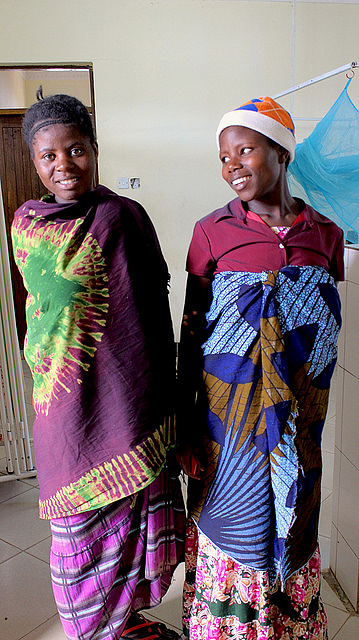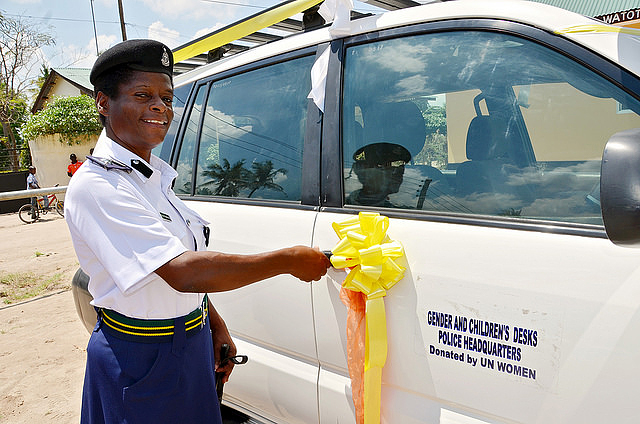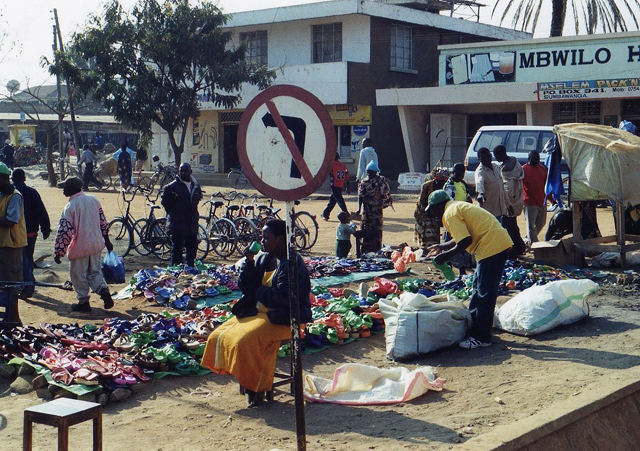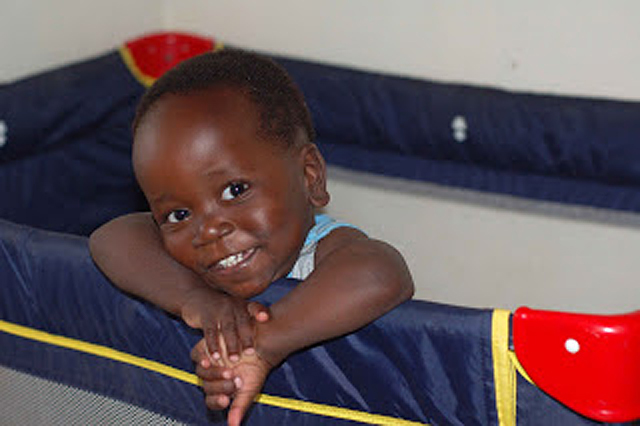In line with some news stories in May about Fipa women physically punishing a man, last week a report indicated that some of them have been beating their husbands. Gender violence in reverse. Although the news report does not say that the couples involved were all ethnic Ufipa, they are from the city of Sumbawanga and the surrounding area of the Rukwa Region in Tanzania, the traditional homeland of the Fipa society, and their actions certainly exemplify their equal—or in this case perhaps their more than equal—gender relationships.

Evidently 20 married men decided to overlook the stigmas and possible shame they might receive and reported to the police in Sumbawanga that they had gotten beatings and been abandoned by their wives. Corporal Germana Mfwomi, the head of the Gender Violence and Children desk in the Sumbawanga Police Department told the reporter about the situation on Saturday August 26 at the inauguration of a program in the city designed to stem gender-based violence.
Ms. Mfwomi said that 15 married men had voluntarily approached the police department to report what she characterized as ruthless beatings by their spouses. What had happened was that in 13 of those cases, the wives had first gone to the Gender Violence and Children desk to report that they had been beaten by their husbands. But the women had been lying.

The policewoman told the reporter, “We … uncovered that it was the husbands who had been beaten by their spouses, who admitted that after being beaten by their spouses they felt embarrassed so they decided to kick out their wives, who in turn rushed to the police desk and complained [about] being beaten by their husbands which … was not true.” Several other men, she added, had also voluntarily reported to the police that they had been abused by their wives.
Ms. Herry Sanga, the Sumbawanga Municipality Welfare Officer, told the reporter that roughly five married men so far had reported to her office that their wives were frequently beating them for unknown reasons. She admitted that the number of men being abused by their spouses could be higher because men would not report the situation for fear of embarrassment and the social stigma involved if their situations became known. Ms. Sanga added that between 40 and 50 cases of gender-based violence are reported every month.

A news report two years ago described steps that several agencies were taking to stem gender violence and it provided background on the gender equality that has traditionally characterized the Fipa society. It quoted one Imelda Honga, a police officer at the Sumbawanga Gender and Children Desk, as saying that training programs that were trying to educate people about gender relationships seemed to be helping, for the reports of domestic violence were decreasing.
The literature on traditional Fipa society, such as the book Fipa Families by Smythe (2006), pointed out that while boys and girls had their separate, gendered tasks, the roles were not rigidly enforced. Sometimes boys would help girls with their jobs and the reverse. The Catholic missionaries who were converting the Fipa over a hundred years ago were appalled at those practices and sought to teach the children to practice their proper tasks as little girls or boys, but the Fipa resisted the European notions of the supposedly normal duties of their genders.

Smythe did mention the existence of spouse abuse in her book. During the period of her fieldwork among the Fipa in the mid-1990s, women, she wrote, were in a different situation from the men. They were in a “disadvantaged state … as residents at their husband’s home[s] and subjected to physical abuse by their husbands (p.111).”
The recent news stories make it clear that the Fipa are quite cognizant of the importance of ending the gender violence that does occur in their society—whether perpetrated by men or women.